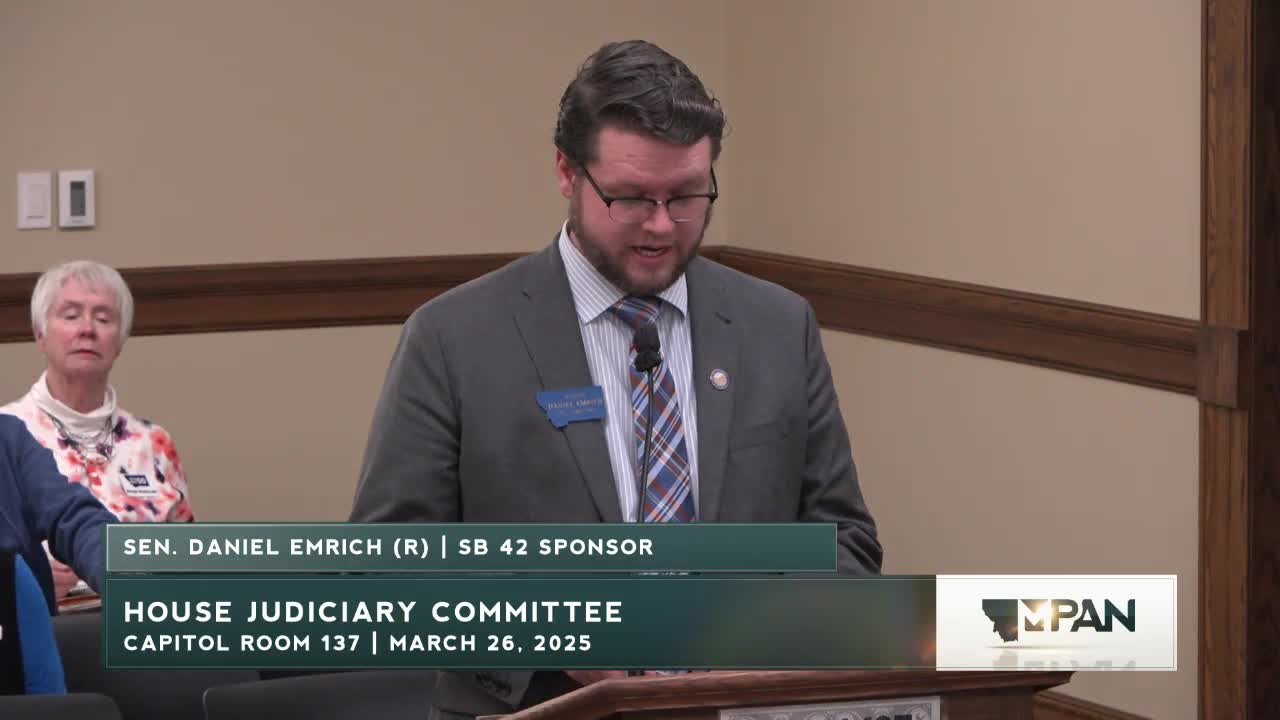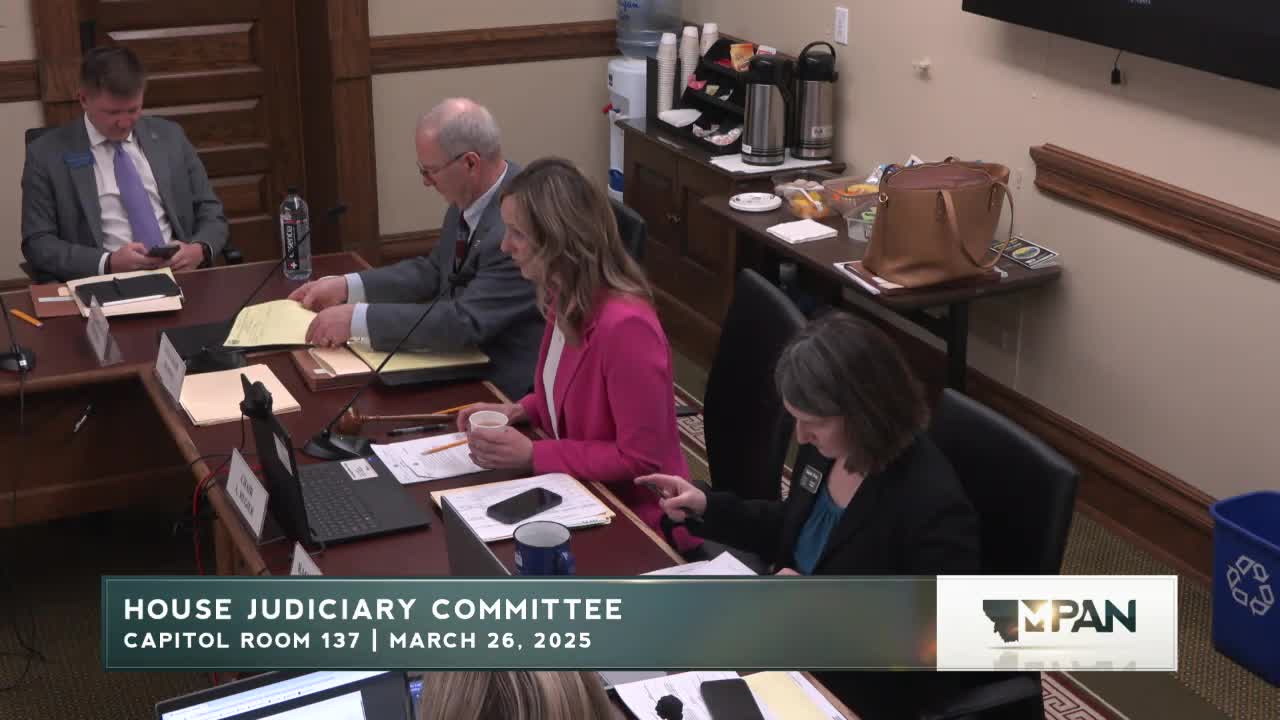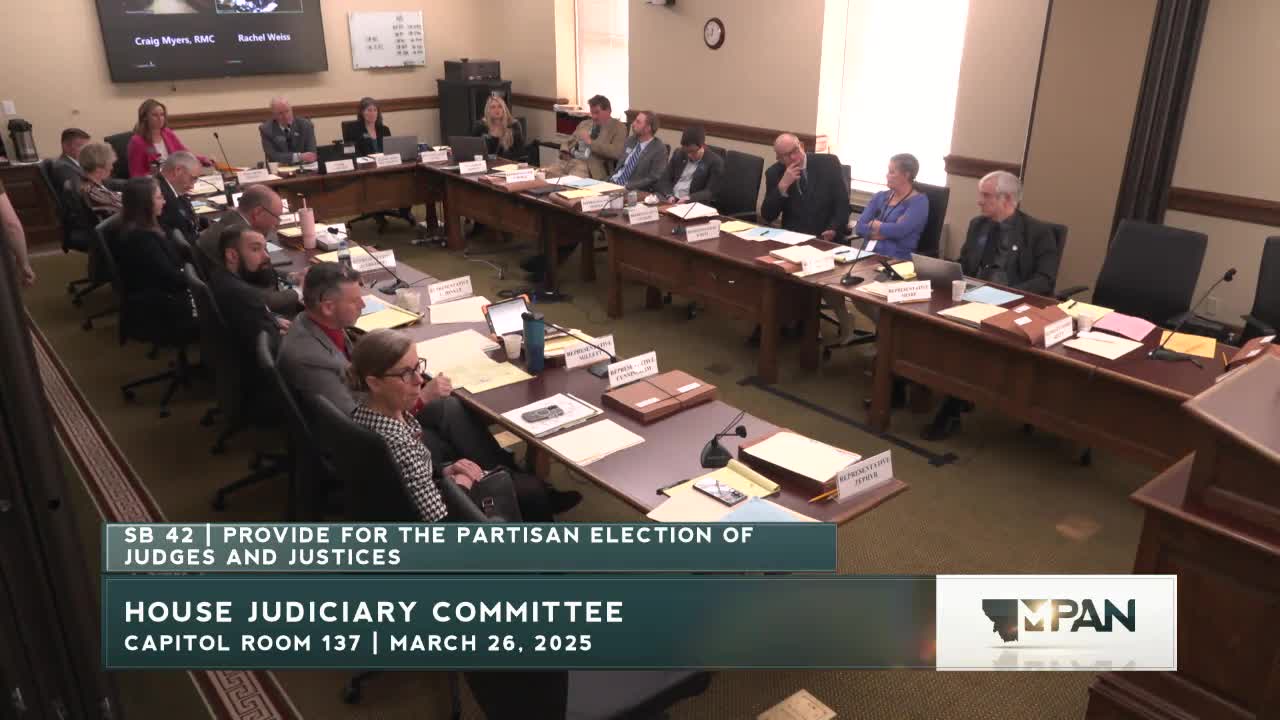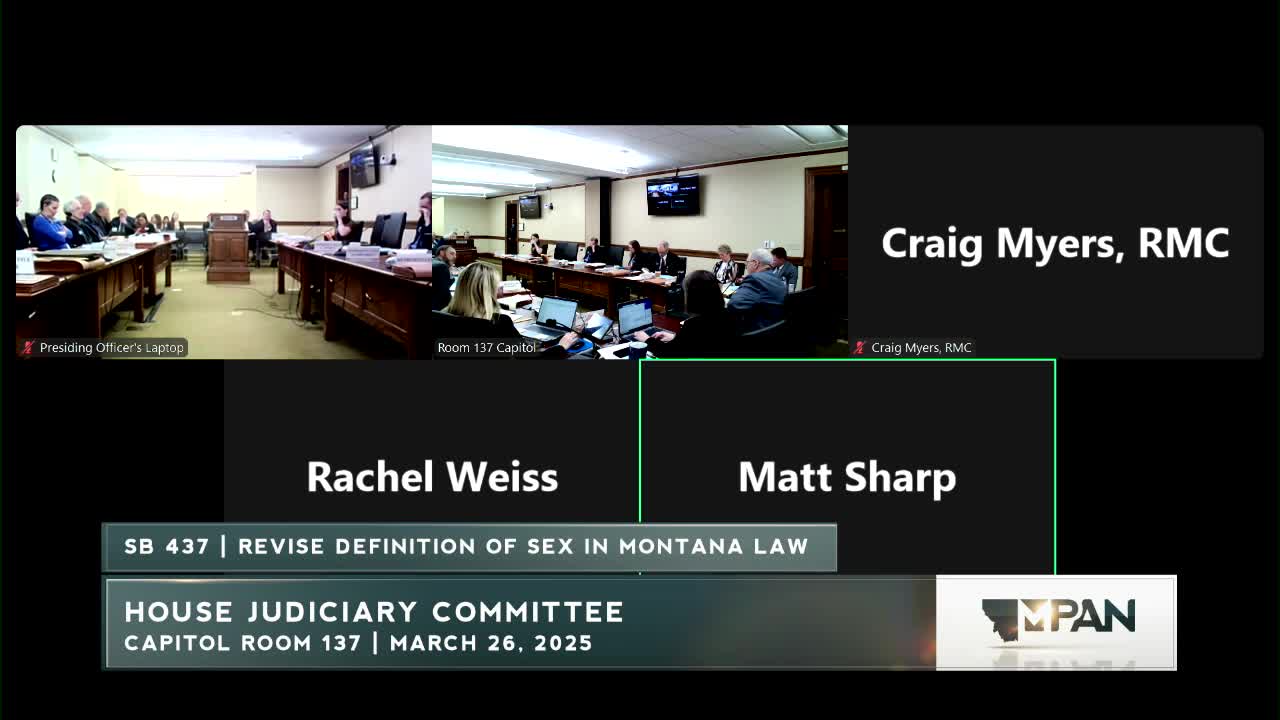Article not found
This article is no longer available. But don't worry—we've gathered other articles that discuss the same topic.

Bill to allow party labels on judicial ballots draws sharp opposition and praise

Montana hearing draws hours of testimony on bill to define ‘male’ and ‘female’ in state law

Committee considers bill barring government purchase of commercial location and communications data without warrant

